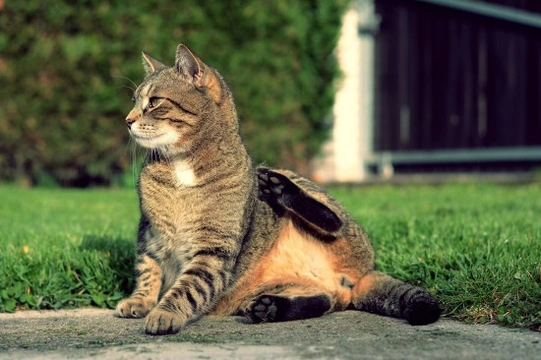
Why Is My Cat Losing Weight? - The 5 Main Reasons
Cats have something of a reputation for being rather finicky eaters, but even so, they are adept at measuring their food intake and consuming just the right amount of calories each day to maintain a healthy weight. While all cats will enjoy particularly tasty treats and may become overweight if they are fed an inappropriate diet, they do not tend to binge-eat like dogs do, and can usually be trusted to have food left down for them all day to graze on as they see fit.
However, if your cat appears to be losing condition and their weight appears to be melting off them for no particular reason, this can potentially indicate that something is wrong, and it is important that you look into this. If your cat’s weight loss is not related to a change in activity levels or any other identifiable factor, you will need to get to the root of the problem, and address it before it becomes an issue.
Read on to learn about the top five reasons behind why cats lose weight.
Unpalatable food
If your cat turns their nose up at what you offer them for dinner, you might have a problem on your hands! While cats will usually come around to the idea of eating something they are not very keen on if they are hungry enough, if you know that your cat doesn’t particularly like any given foodstuff, it is important to find something that they do like, in order to help them to maintain their weight. If your cat really doesn’t like their food, they might go looking for a meal somewhere else, or even start to catch their own!
As well as considering the food that you give to your cat, ensure that their bowls are always clean and in good condition, as manky old bowls covered in dried on food may well be enough to put your cat off their dinner.
Worms
Intestinal parasites such as worms are one of the main culprits of loss of weight and condition in the cat, and left unchecked, can also lead to serious health implications.
If your cat is dropping weight but appears to still be eating normally, make sure that their worming protocol is up to date, and that you are using a suitable wormer that is recommended by your vet. Cats that hunt prolifically and like to eat their prey may require worming more often than others to keep them parasite-free.
Stress
Cats are very sensitive creatures, and are very likely to be thrown off their game by stress, upheaval or alterations to their living situation. If your cat goes off their food due to stress, they might potentially show their unhappiness in other ways too, such as inappropriate toileting, destroying or scratching the furniture, hiding within the home or spending long periods of time away from the home.
It is important to identify if there might be any cause of stress in your home that is bothering your cat, such as the presence of another pet, children upsetting the cat, or something else.
Changes such as someone else moving into the home or moving house can all take their toll on your cat, but these things will usually settle down on their own once the household returns to its normal status quo.
Old age
As cats age, they naturally begin the mental and physical decline that leads up to the ultimate end of their lives. This can cause your cat to both lose weight and become more picky about their food, but there are some steps that you can take to try to manage this.
Remember that if your cat is old, their teeth might not be in great condition, and so your cat may need to eat soft food to account for this. Also, as their sense of smell diminishes, they will not find their usual meals as palatable, so feeding particularly fragrant dishes might help to encourage your cat to eat.
Once your cat is mature (over the age of eight) they will also need to be fed a special diet for mature cats, which supports their natural aging process.
Health problems
Health problems are of course one of the main reasons for loss of weight or loss of appetite in the cat, and these can be numerous and varied.
Conditions such as diabetes in the cat will lead to fast weight loss, increased thirst and hunger, and other symptoms too. If your cat’s teeth are in poor condition, they may have problems eating, while stomach problems can lead to a whole range of issues as well as loss of weight and discomfort when eating.
If you have ruled out the other four reasons mentioned above, you will have to consider the possibility that your cat has an underlying health problem, and take them along to the vet to get checked out and formally diagnosed.



